I realize it has been awhile; my life has been pretty unexpectedly crazy!
But for those of you who care, for those of you who fell in love with Nicaragua along with me, I need to share this.
I was blessed to return to this country, this beautiful land that will always hold my heart. I took eight college students along with me. It was incredible and beautiful and heartbreaking. In so many ways, it was the same. In so many ways, it was different.
I got to reconnect with old friends. Yesina (the girl who gave me a charm for my necklace) ran to me and hugged me first thing and I knew the friendship we had last year was real. But now she goes by Scarlett. Janet and I had several good conversations and lots of hugs and laughter. I pray I grow into a woman like her. We painted some of the same rooms. We fell in love with new faces, and continued friendships from last year. We prayed the same heartfelt prayers to a big God who loves us all. It was beautiful in its sameness.
It was also heartbreaking in its sameness. Kids are still hungry. Too many have ill-fitting clothing or even worse, no clothes other than their school uniform. The school is too full with too few resources, but the only other option is to turn kids away. Too many parents still work in the dump, digging through trash, to make a living. This year I know the blond hair we marveled over last year is a very strong indication of major malnutrition experienced during childhood. This year I heard a bit of the history of this village, and it still haunts me how such a thing could happen. Too many kids had moved away in search of a better life, and the necessity of that is so very sad.
Fortunately we serve a big God who hasn’t forgotten this village or these people. And there are many, many things to be thankful for.
Food
The prayer I prayed most often over this last year, often whispered in the depths of my heart in the midst of my busiest of days, was simple supplication for food: God, let them have food today. Every time I said this, my heart broke a little, because it shouldn’t be necessary to pray such a thing. No child should ever experience hunger.
It turns out my prayers were being answered. I came back and still found hunger there; it hasn’t been solved. But, incredibly, the feeding program that used to be once a week for all of the students is now five days a week. The program isn’t much. They pretty much get rice and beans every day and a couple times a month they will get milk. It is hard to live on rice and beans. But they have food. Part of this is because of ministries that support feeding programs, part of it is through the generous donations of individuals here in the states, a lot of it is through the budgeting and penny-pinching of Janet and her team in Nicaragua, and part of it is through the kitchen we helped build last year. All of it is because of God’s blessings.
Now when I pray, I thank God for providing them with food.
Chicken Coop
This is a difference I found in my team, a difference we are hoping and praying will extend to this village.
The work we did this year was a little bit of school maintenance (painting classrooms), a little bit helping the feeding program (cleaning up a room, providing tables and chairs, cups and plates), and a little bit of making the school closer to self-sustaining (planting a garden of beans, watermelon, and more). The team this year caught on to the self-sustaining aspect and we spent a lot of time talking about ways we could make sure this school and these kids were taken care of long after we are gone.
We went to the dump one day, which is never an easy experience. Here we find the adults from the village digging and rummaging through, hoping for something worth selling to provide for their family. (This year the van was packed to the brim with 19 people to go to the dump. The last four to board were little boys from the school who chased after us, took a shortcut, and caught up to us all because they wanted to see their moms, who were working at the dump.)
It is hot and stinky and there are a lot of flies. We have too little food and cool drink and too few words of hope to pass around in a place that feels so hopeless. A few of the students took to the people, having long conversations with a few of the people we found there. We got to pray for a couple different groups. Someone found two huge old tractor tires for the kids at the school to play on (they literally jump on the rim of them like trampolines and later they started rolling kids around in it). It was incredible to see a few men at the dump band together with our guys to get these tires on top of the van. We must have been a sight coming back—seventeen people inside and two people and two huge tires on top of a 15 passenger van.
This day must have had an impact on our students, because that night we sat down and had a conversation about how they couldn’t imagine spending money to go zip lining in a few days knowing these kids and their parents were in the situation they were in. Being the leader of the trip, I actually encouraged them to take their fun day, to relax a little. I was blown away by their idea, but I wanted to see how serious they were. They were steadfast—they wanted the money to go to the school.
The missionary we were working with had been toying with an idea of building a chicken coop with the idea that it would be self-sustaining food. If you have enough chickens laying eggs, they can sell a few to buy grain to feed the chickens and still have plenty of eggs to eat. The students loved the idea, prayed over it, and committed their money for their fun day to build this chicken coop. (Many are even still giving now, even though we are home, because of their belief in it).
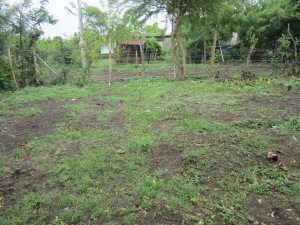
This is the area behind the school where we planted the garden and where the chicken coop will go. We saw sprouts coming up before we left. Our team and the students at the school covered this ground in prayer for those chickens. Jehovah-Jireh, God will provide. (This is also the name of the school, for those interested).
There are a lot of ifs with this. It may not work. But we have the incredible faith of eight students praying over this and giving of themselves for it. It means more than I can say.
Last year in Nicaragua I listened to a song titled “The World You Want,” a song about creating a good world. Last year I cried because I saw too little hope in Nicaragua. At the end of this trip, I listened again and I cried because of how much hope I saw, just in my team giving money for a chicken coop.
Daniella
This girl. Isn’t she beautiful?
It has been a year, and she still has my heart. I always thought (without really putting it into words) that people who fell in love with babies on mission trips were being a little dramatic, making emotions sound deeper and longer-lasting to tell a good story. I think God wanted to prove me wrong.
I got to see Daniella nearly every day this trip! She is beautiful and growing (though still small for a one-year-old; she probably doesn’t have the best nutrition and being a preemie to start with can’t help things). She can stand and is close to walking. She has the prettiest smile, one I can’t get out of my mind. She is hungry all the time but will fall asleep on your shoulder when she is finally full. She has teeth and can eat nearly anything (I saw her gnawing on a chicken leg one day). Her grandma is the cook for the school, which I love because it means Daniella gets food (and likely milk when it is available). She loved watching videos on my phone (that was the biggest smile I got, when Daniella was watching a video of my little miss sing a song).
Most importantly, this little girl is loved to the moon and back. I first saw her being carried in by her grandma, who had the biggest smile on her face, wanting us to find the joy in Daniella that she has found. Daniella is primarily cared for by her grandpa, and the pride in his eyes when looking at her is so evident. He kept showing me how big and strong she is, how she can stand, and so much more. He gave each of us gifts on our last day at the school; he made sure to tell us they were from Daniella. This is the one thing that made it all okay. Loving a baby living in such poverty often means wanting to take them away from it; just bringing her home would solve so many problems (as impossible as it is for many different reasons, the desire is still there). But seeing her family love her so much makes it all okay. I thank God for that.
After two years of visiting this beautiful place, I am overcome by gratefulness. To God for allowing me to come and learn and fall in love with so many of his children. To this country, for lending its stories and beauty and teaching me about loving and living well. I hope and pray we gave as much back to them.
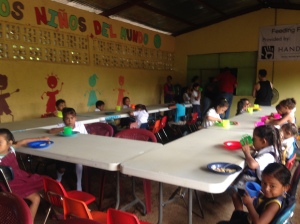
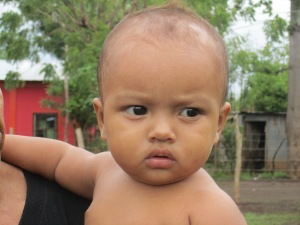
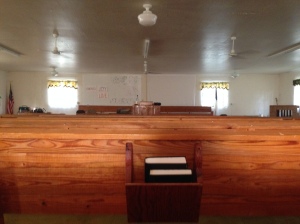
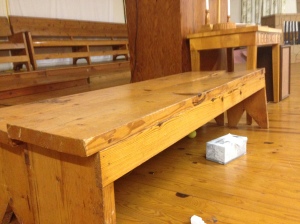

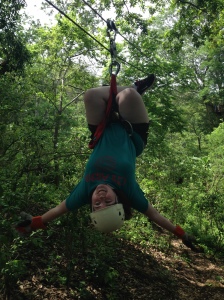
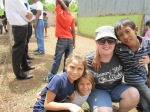
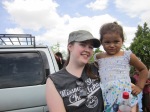

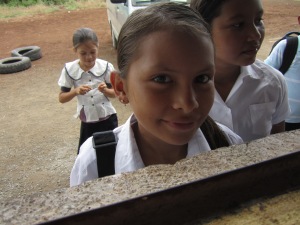
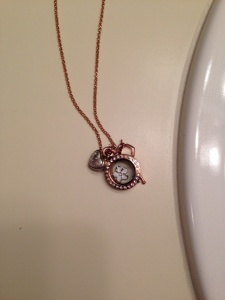
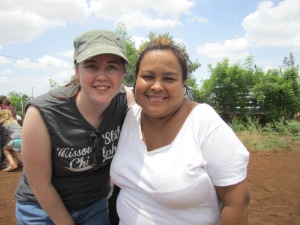
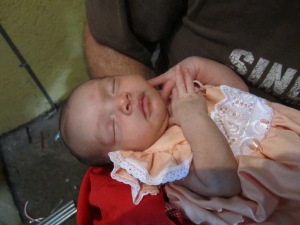 Meet Daniella. She was six days old when I first saw her, and she is a little beauty. She is perfect in the way only newborns are. She is lovely. She matters. She is important. She is valuable for so many reasons: she is a child of God, beloved and created by Him; she is and will remain the only child of Iris, a young woman who fought for her, risked her own health, and spent several days in the hospital for her daughter; she is a human being made in the image of God; and, least of all, she changed me. I walked into a little house with a dirt floor, patched-up walls, and a tin roof to hold her and pray for her and bless her, and instead I learned about the heart of God.
Meet Daniella. She was six days old when I first saw her, and she is a little beauty. She is perfect in the way only newborns are. She is lovely. She matters. She is important. She is valuable for so many reasons: she is a child of God, beloved and created by Him; she is and will remain the only child of Iris, a young woman who fought for her, risked her own health, and spent several days in the hospital for her daughter; she is a human being made in the image of God; and, least of all, she changed me. I walked into a little house with a dirt floor, patched-up walls, and a tin roof to hold her and pray for her and bless her, and instead I learned about the heart of God.